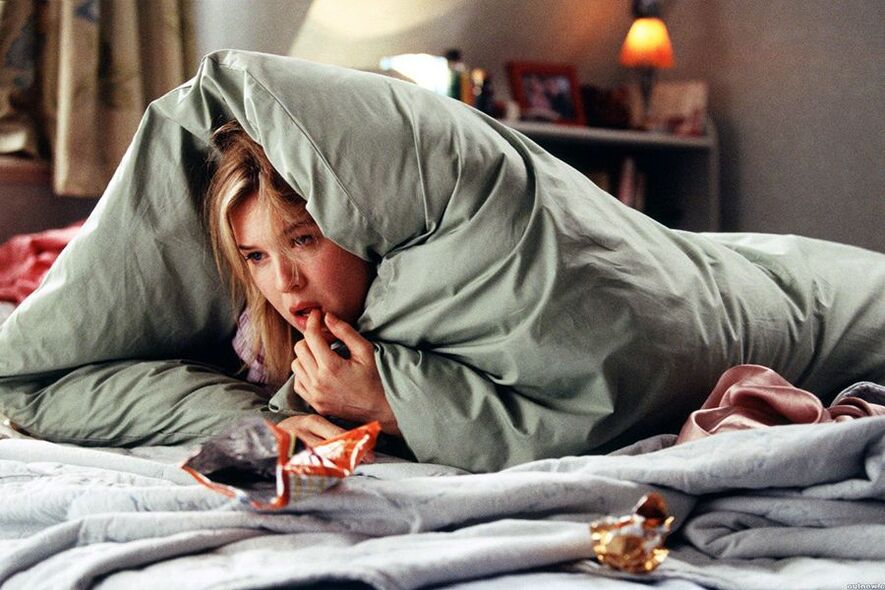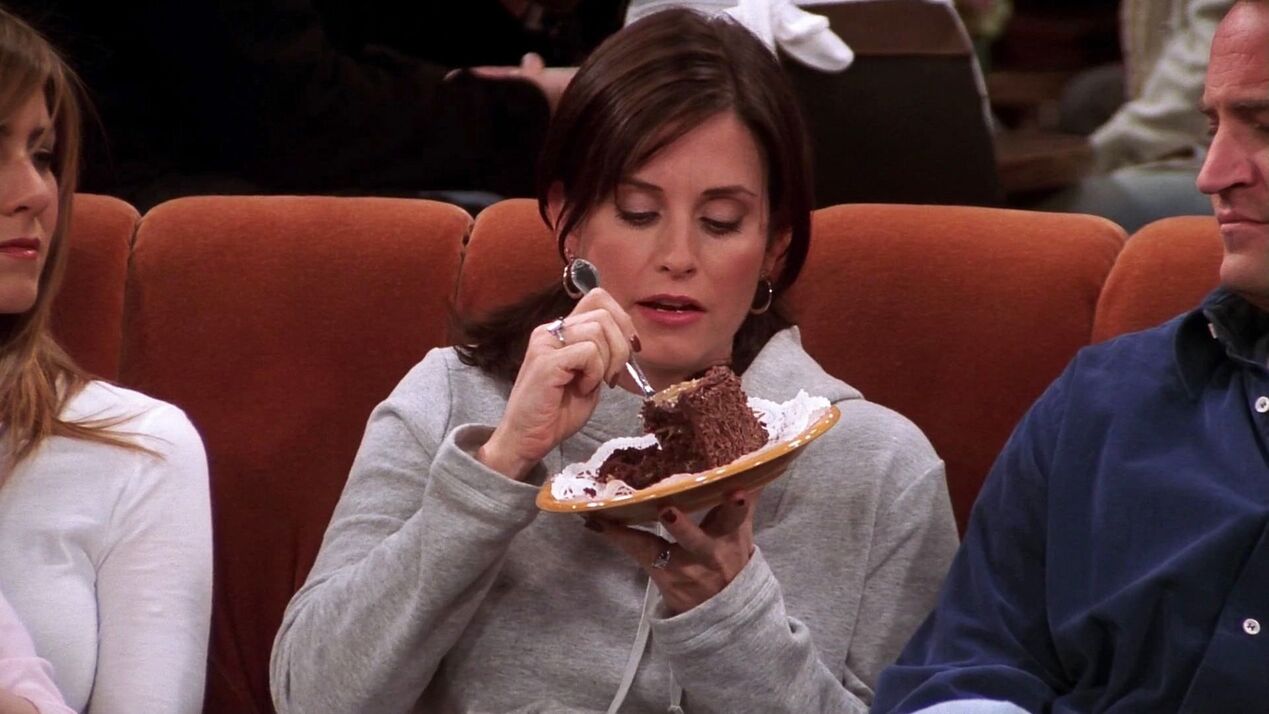
The title contains a popular search query in search engines. But this article is not going to provide advice like "count to 10 and have a glass of water". Let's talk about something else: why it is a bad idea to force yourself to lose weight, not to eat, and how to deal with your attitude towards food.
What's Wrong With Not Eating To Lose Weight?
practicing psychologist: If you have a healthy attitude towards nutrition, then you are in contact with your body - you hear its signals and you know how to use it. If the body signals hunger, it is quenched; when full, you stop eating. The message "don't eat to lose weight" implies breaking that contact, confronting yourself, and manifesting autoaggression. It turns out that you are taking action against yourself to achieve the goal (weight loss). That isnot goodÖboring and unhealthyÖin.
psychiatrist: Most people who have lost weight from a restrictive diet will take it back on within 1-2 years. In addition, 2/3 of them win more than they lost.
Endocrinologist:The message of forcing yourself to lose weight, not to eat, is irrational. It is important to understand: what happens to the body? Maybe it's not due to poor diet, but rather hormonal properties.
And what is it about - a healthy approach to food?
psychiatrist: This is when regular meals and snacks are not accompanied by fear, shame, and feelings of guilt. Lack of "prohibited foods", diets and calorie counting. And if you allow yourself to enjoy food.
Endocrinologist:It's about seeing food as a condition for a full, happy life. And not as a substitute for joy and pleasure.
practicing psychologist: This is when you stop eating when you are hungry, when you are full, not focusing on your body's deficiencies that need to be "corrected" with food, or refusing not to overeat, not seizing emotions.
Can you provide more details? How and why do we eat up emotions?
practicing psychologist: There are no good and bad emotions for the psyche, it can cope with anyone. She doesn't need any food, alcohol, gadgets or television for this. But there are situations when a person drowns out their emotions with food. Excitedly, I ate a bowl of ice cream - it got easier. His behavior was positively reinforced and the person began to resort to this strategy over and over again.
Consulting psychologist:People often eat too much because they don't have a rest. Let me give you an example. One young woman had a problem: she eats a lot in the evening and cannot stop. Turns out she works for three because she doesn't know how to turn down colleagues. There's no time for a bite to eat: business all the time. And in the evening she cannot eat. That is, a person exhausts himself, overworks himself, is constantly under stress. How can you replenish the lost energy? Burger, potatoes, chocolate.
It turns out to be wrong for a person to eat when they are bored, anxious, angry, tired, or sad?
Consulting psychologist:In itself, this is neither good nor bad: food is subconsciously associated with safety. For a newborn baby, eating is not just eating, but closeness to mom, reassurance, trust, acceptance, love, communication. Adults also sometimes eat to calm themselves down. It's bad when it's the only way to deal with fear or anxiety.
psychiatrist: We satisfy various psychological needs with food. For example, family dinner is intimacy. Going to a restaurant with friends eliminates the need for social interaction. The problem arises when food becomes a crutch to our negative experiences. That brings us to the topic of eating disorder (EID) or eating disorder. Psychiatry deals with these problems.
Wait wait! It turns out that if I eat an after-hour chocolate bar and feel guilty, is that a nuisance? Should I go straight to the psychiatrist?

practicing psychologist:Hard question. There are situations when a person on the run eats chaotically and does not pay attention to what they are eating. Or he eats when he is not really hungry - out of boredom or out of company. It can only be an eating disorder that can be corrected with a nutritionist. But at the same time, eating outside of hunger is one of the symptoms of RIP. The line is very thin. And only a doctor can tell. In our country, a psychiatrist is engaged in it.
Endocrinologist:It happens that a person is constantly sad, worried, tired - and picking up on these problems. Perhaps this is the result of constant stress. But they are also symptoms of endogenous depression and anxiety neurosis. A psychiatrist is also involved in diagnosing such conditions.
But isn't ERP bulimia and anorexia? Symptoms are hard to confuse
psychiatrist: It's not just bulimia and anorexia. Eating disorders also include psychogenic overeating (also called paroxysmal or compulsive), eating inedible food (Pick's disease), and psychogenic loss of appetite. These are diseases that are listed in the International Classification of Diseases (ICD). However, there are disorders that are not on this list but are also attracting the attention of psychiatry: selective eating disorder, orthorexia (when the desire for a healthy lifestyle crosses all boundaries), and pregorexia (the strictest restrictive diet in pregnant women).
practicing psychologist: Psychology also differentiates overeating syndrome (BOE): When a person eats almost nothing all day, cannot sleep for a long time or wakes up often and goes to the refrigerator when waking up.
Is Obesity An ERP Too?
psychiatrist: Not always. There can be many reasons - these are genetics, sedentary lifestyle, and hormonal imbalances. It is not possible to equate RPP with obesity.
practicing psychologist: Yes understood. There are people with absolutely healthy eating habits who are overweight. And vice versa - for example in patients with anorexia nervosa.
Have you heard that RPP is mostly about women, teens and models? It is true?

Psychiatrist:No, of course. The disorder can develop in both men and women at any age. For example, selective eating disorder is most common in children - the child only eats certain foods.
practicing psychologist: Anorexia and bulimia are more common in women. But compulsive overeating - in men and women alike. So it's impossible to say that RPP is an all-female problem. And yes, young people, models, athletes who practice aesthetic sports (rhythmic gymnastics, figure skating, sports dance), TV presenters, bloggers, actresses - everyone who is in sight and whose work depends on appearance is at risk. But the problem can affect anyone, even those far removed from modeling or beauty blogging.
It is believed that all nutritional problems are an attempt to attract attention. Is that so?
practicing psychologist: There is such an opinion, but it is not scientifically founded. Yes, during therapy it may be found that the RPP started when the person was not accepted by their peers. For example, for a girl aged 13-15, it is important that the boys look at her and that her friends agree, so she was on a strict diet. It also happens that eating problems are a child's attempt to get parents' attention, often subconsciously. But these are rather special cases. It is wrong to believe that the need for attention is the leading cause of eating disorders.
So what's the reason?
practicing psychologist: There are three groups of reasons: biological, psychological and social. Biological - for example a genetic predisposition for RPC - can unfortunately be inherited. Psychological - domestic violence, prohibition of expressing negative emotions, violation of the parent-child bond (for example, if the child has cold, distant parents). Social - the cult of ideals of beauty, slimness, bullying.
psychiatristA: There are certain personality traits that can contribute to the development of EID, such as perfectionism or over-responsibility. The peculiarities of eating habits in the family, attitudes towards weight and figure also have an effect. The child could be rewarded with sweets for good behavior and learning, and the fact remains: Since I'm good, you can take a piece of candy. Very well? I'll take ten.
Consulting psychologist:Many patients with ECD have experienced physical or sexual abuse. For many too, eating helps to derive secondary benefits from the situation. For example, one of my clients needed weight to protect themselves from men. During the course of therapy we discovered that the school-age girl had got into an uncomfortable situation with an adult man. The customer was surprised that she remembered: this story seemed "forgotten", but it continued to influence the girl's behavior in adulthood. They also revealed the belief that men only love thin people. If so, the extra weight helped her to be "safe" without men.
How common are eating disorders in society?

psychiatrist: The prevalence of RPC in the world is believed to be around 9%. The prevalence is higher in risk groups. There are studies in adolescent girls that report that by the age of 20, around 13% have CRP symptoms. Anorexia is one of the most deadly mental disorders, even before chemical addiction.
practicing psychologist: It is difficult to give exact numbers because people with PAD often do not understand that they need help. There are figures for the United States as a center for research and statistics on eating disorders: approximately 30 million people live with eating disorders. There are twice as many women as men (20 million versus 10 million). And every hour in the world at least 1 person dies as a result of RPE.
What are the symptoms of RPE? Can I diagnose this myself?
psychiatrist: In general, the main symptoms are as follows:
- A person makes himself vomit or otherwise compensates for what he ate after eating, such as excessive physical exertion (physical tyranny), laxatives, and diuretics.
- Strong fixation on weight and figure (you can't add / lose a gram or centimeter! ).
- Numerous attempts to reduce weight and body weight swing.
- Various numerous dietary rules (I only eat proteins, only vegetables, only red).
- Constant thoughts, fears, and feelings of guilt and shame about food intake and body weight. When food-related thoughts and behaviors cause a lot of suffering.
- Loss of control over the amount consumed.
But many can have such symptoms to varying degrees. Is there a more precise diagnosis?
Endocrinologist:RPD is a systemic chronic disease. It causes metabolic changes in systems and organs, changes in human neurohumoral regulation. This is a complex problem that can manifest itself in neuroses, organic pathologies of the brain, organic lesions and depressive disorders.
But first you need to determine the cause of the symptoms. For example, if a person runs to the refrigerator at night, you need to determine the glycogen level to rule out insulin resistance and type 2 diabetes mellitus.
What if you understand that you or your loved one has an RPP?
practicing psychologist: If you have - consult a psychiatrist for diagnosis. If you suspect an RPP in a loved one, it is more difficult: he often refuses, does not want to admit that there is something wrong with him. And unnecessary pressure can destroy trust. Let your loved one know that you are by their side, ready to help and support.
Who Treats ECD? Just a psychiatrist?
psychiatrist: No. Diagnosed by a psychiatrist. And he heals, depending on the illness, a psychiatrist, psychotherapist, clinical psychologist (as prescribed by a psychotherapist). Why is it so important to see a psychiatrist anyway? Because it can reveal comorbid conditions like depression or anxiety disorders, which occur in about 80% of cases in people with RPD. Treatment depends on the severity of the disease. It can be drug therapy in combination with psychotherapy (group, cognitive behavioral therapy, dialectical behavioral therapy). Family therapy is also recommended.
Consulting psychologist:Anorexia and bulimia are primarily treated by a psychiatrist. Emotional overeating - psychologist, counselor psychologist. Obesity - a nutritionist-endocrinologist (you need to check hormones, if metabolism is disturbed) along with a psychologist or psychotherapist.













































































